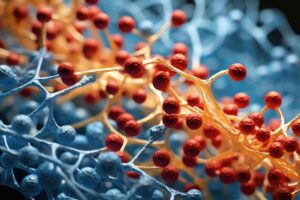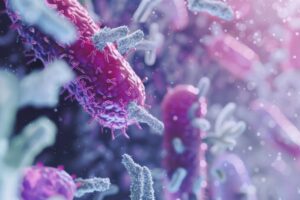Science News
Immunology, Nutrition
Dietary LPS can mimic microbial signals and drive gut immune development, with early-life being a critical window for shaping gut immunity.
Oncology
Dietary intervention and the utilization of D. dubosii offer potential insights for the treatment of brain tumor patients.
Dermatology
The findings of a recent study highlight the importance of understanding skin microbiotas to manage long-term fungal infections in Indigenous communities.
Healthcare professionals area
The gut microbiome has emerged not just as a passive bystander in sports, but as an active modulator of athletic energy, recovery, and resilience.
Gastroenterology
STING activity is important for gut health and that targeting this molecule could offer new treatments for IBD.
Neuroscience
DQGlyco identified multiple unique N-glycopeptides, quantified glycopeptide changes, and explored the link between gut microbiome and brain protein functions.
The Bold Column
Ministers have generated policies to protect soil, forests, bees, fish, cows, oceans, big rivers, you name it. But what about the microbes?
Immunology, Pediatrics
Bacterial metabolites such as inosine could be used as a therapy to strengthen infant immunity after early microbiota disruption.
Immunology, Neuroscience
N-acyl lipids are important, overlooked molecules shaped by diet and gut microbes.
Gastroenterology
Fiber can influence how well bacteria from a fecal microbiota transplant successfully settle and grow in a person’s gut.
Oncology
Targeting the gut microbiota could help predict, prevent or reduce chemotherapy-related toxicity.
Video, Events
Professor Ruggiero Francavilla, pediatric gastroenterologist at the Polyclinic of Bari (Italy), offers a preview of his upcoming talk at the 10th International Congress of Probiotics, Prebiotics, and Postbiotics in Pediatrics.
Gastroenterology
Region-specific microbial transplants may be safer and more effective than standard fecal microbiota transplants.
Oncology
Plant compounds and gut microbiota activity influence how cancer drugs work and should be considered in treatment.
Pediatrics
Professor Roberto Berni Canani, pediatrician at the University of Naples Federico II, previews the key topics he will present at the 10th International Congress of Probiotics, Prebiotics and Postbiotics in…
Dentistry
Tracking the oral microbiota can help identify ECC risk early and inform prevention strategies in children, even before visible signs of decay.
Endocrinology, Nutrition
AceCel is a promising way to help manage obesity by targeting gut bacteria and metabolism together.
Healthcare professionals area, Neuroscience
The science behind gut-brain communication and the role of intestinal integrity.
Healthcare professionals area, The Bold Column
What if in 2045 you could pay rent with microbes? Discover a future where microbial credits become the new currency.
Events, Pediatrics
Professor Flavia Indrio, President of the 10th International Congress on Probiotics, Prebiotics, and Postbiotics in Pediatrics, previews the key topics for the upcoming 2026 event in Lecce, April 16-18.





















